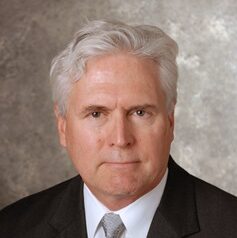Quick, what’s the name of Taylor Swift’s latest album?
Too easy? Try this: What’s the name of her most popular album?
If you were born after 1981, you probably got these right. “Tortured Poets Department” came out in mid-April; “1989” is the best seller.
Both are worth listening to (and if you have a young daughter, you don’t have a choice). But “1989” is worth thinking about. That’s because 1989 was also the year Swift was born.
Yep, Taylor Swift is a millennial. She’s part of a cohort of people born between 1981 and 1996.
If “middle age” begins at 40, the millennials are about there. And they’re doing what every generation does at that point in life, establishing careers and families.
Taylor is making good progress with the career part, but so are lots of her fellow millennials. A recent study by the Federal Reserve found that the median household income of millennials between the ages of 26 and 40 was 18 percent higher than that of the previous generation at the same age.
And it’s not just that they’re making good money; they’re showing themselves remarkably creative, innovative and entrepreneurial. I’m not precisely a Swiftie, but from what I can tell — OK, from what kids tell me — she combines her creativity with a brilliant business model. And if you’re some grumpy old guy on a bar stool who doesn’t want to admit that a billionaire pop star is also a smart entrepreneur, take your pick of any number of other billionaire entrepreneurs — people like Mark Zuckerberg (Facebook), Patrick Collison (Stripe), and Drew Houston (Dropbox). Like Taylor, they’re all millennials.
Now, we must be careful not to fall into lazy, over-broad cliches about generations. People are much more than the year of their birth. Every millennial is not like every other millennial. But on the other hand, each generation faces a set of common challenges and opportunities. And each generation interacts most intensely with their peers. It’s not wrong to think that each generation has its own identity.
So, what in the millennials’ backgrounds might have shaped them into the sort of people they are today? Two things: technology and economics.
These are obviously related, but let’s start with technology. Fun fact: 1981 wasn’t just the year the first millennials were born; it was the year the IBM PC was introduced. There were home computers before then, but they were primarily for nerdy hobbyists. The PC probably wasn’t even the best desktop computer, but it made computers ubiquitous. In 1981, a NASA control room was the only place to see a room full of monitors cluttering every workspace. By the time the millennials started working, every office in America looked like that control room — and in fact, the computer used by your typical stockbroker in 2000 was vastly superior to what those NASA engineers had available in 1981.
Without that technology, many of those millennial entrepreneurs couldn’t have started the businesses they started. In 1981, the internet was mostly a gleam in some engineers’ eyes. By 2000, about half of all homes had internet. AOL (R.I.P.) didn’t even start until 1991. Without the internet, would Mark Zuckerberg have figured out another way to make billions? Who knows? But he wouldn’t have started Facebook. And for that matter, would songs from “Tortured Poets” have been played more than a billion times within a week of its release without streaming music services?
The economics of the millennials’ story without tech are more complicated. If you look at what’s happened in the economy over the millennials’ lives, things look pretty good. Between 1981 and today, inflation-adjusted GDP has more than tripled.
But did the millennials always know they were on the fast track to prosperity? Probably not.
Parents of one of those kids born in the early 1980s had reasons to worry about their futures. The 1970s and early 1980s saw record inflation, high unemployment and two recessions. The tech that offered those millennial kids opportunities disrupted the life their parents envisioned. Indeed, the economic anxieties of millennial parents had some effect on the millennials.
Remember, too, that millennials lived through the Great Recession, the worst downturn since the Great Depression. That hit hard at the start of 2008, when many millennials were looking for their first real job.
Again, I don’t want to stereotype entire generations, but I suspect many people older than the millennials (that’s me) and younger than millennials tend to regard them as simply lucky, lazy and entitled. The lucky part is clearly right. Millennials came into a world that offered them things undreamed of by earlier generations.
But lazy and entitled don’t seem to fit. Remember Samuel Johnson’s famous maxim about how the threat of a hanging tends to concentrate the mind. The millennials may not have thought they were literally on the way to the gallows, but they were raised by economically insecure parents, and they all faced the challenges of the Great Recession. They had no reason to think the world owed them a living.
You can always find someone who will tell you — truthfully — that millennials face enormous obstacles. Right now, starter houses are expensive and there’s unprecedented government debt. But every generation faces enormous obstacles — think about those kids who matured during the Great Depression. I’m happy that millennials are doing as well as they are, and I’m happy they’ve got some good tunes playing in the background. Let’s hope the soundtrack for the second half of their lives gets even better.


